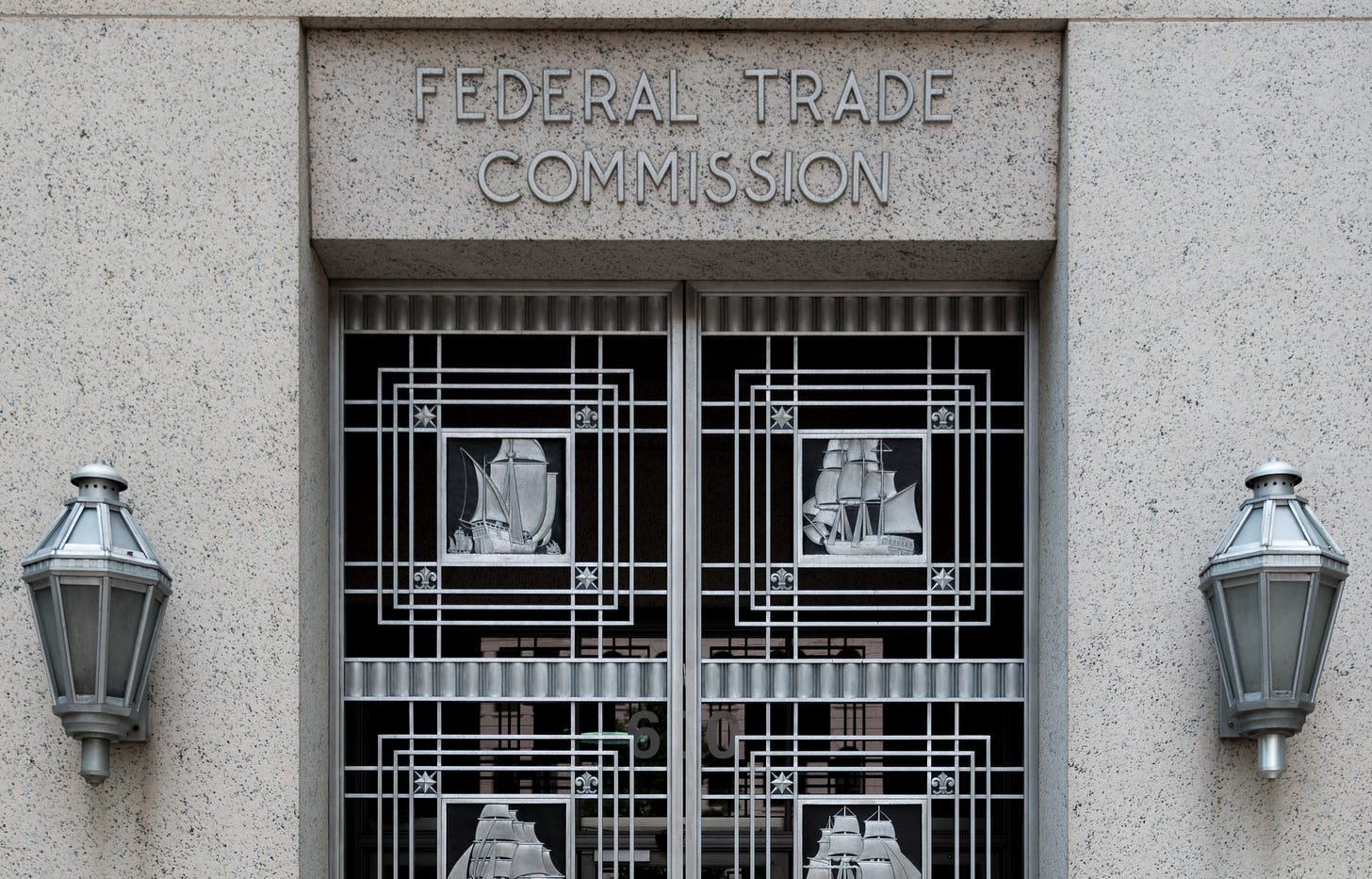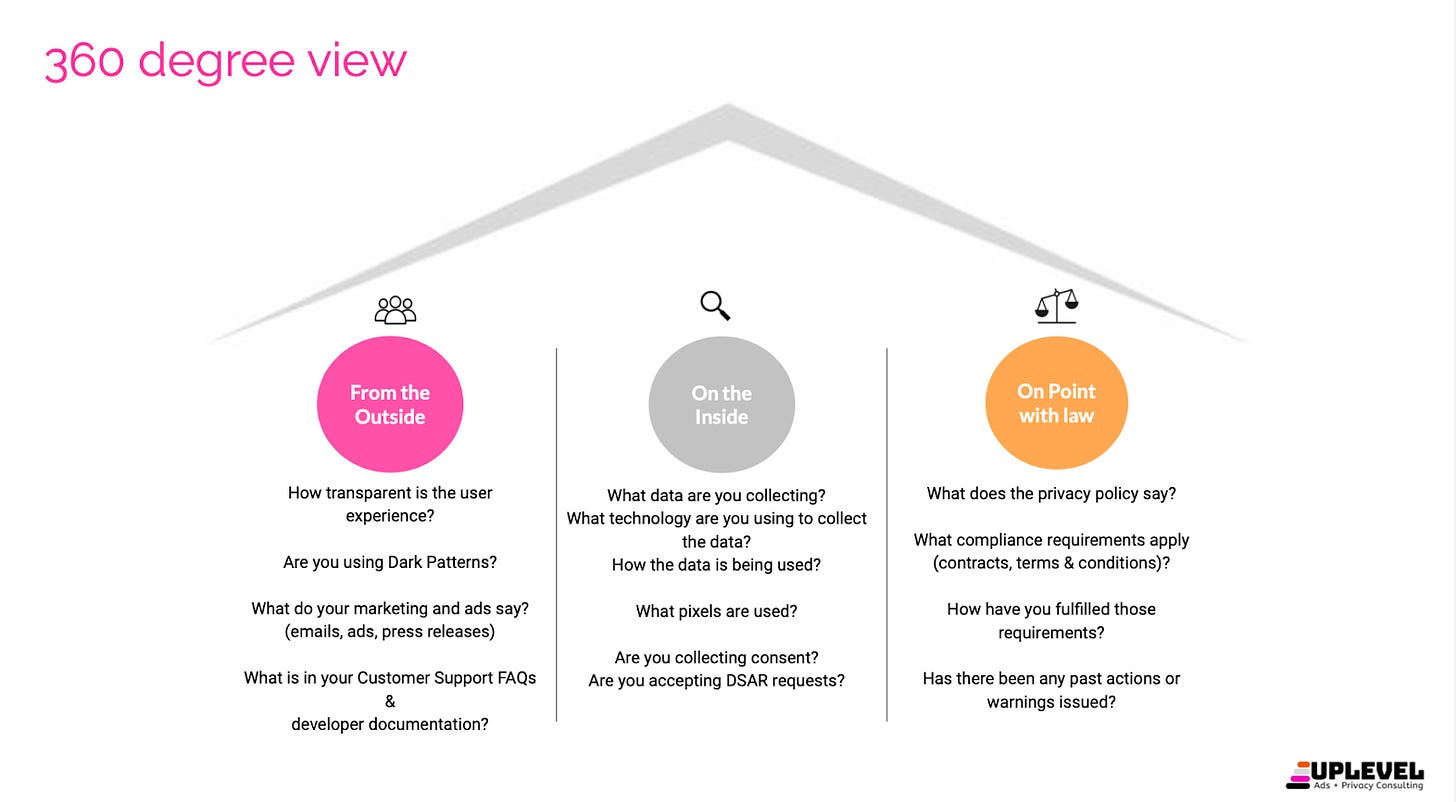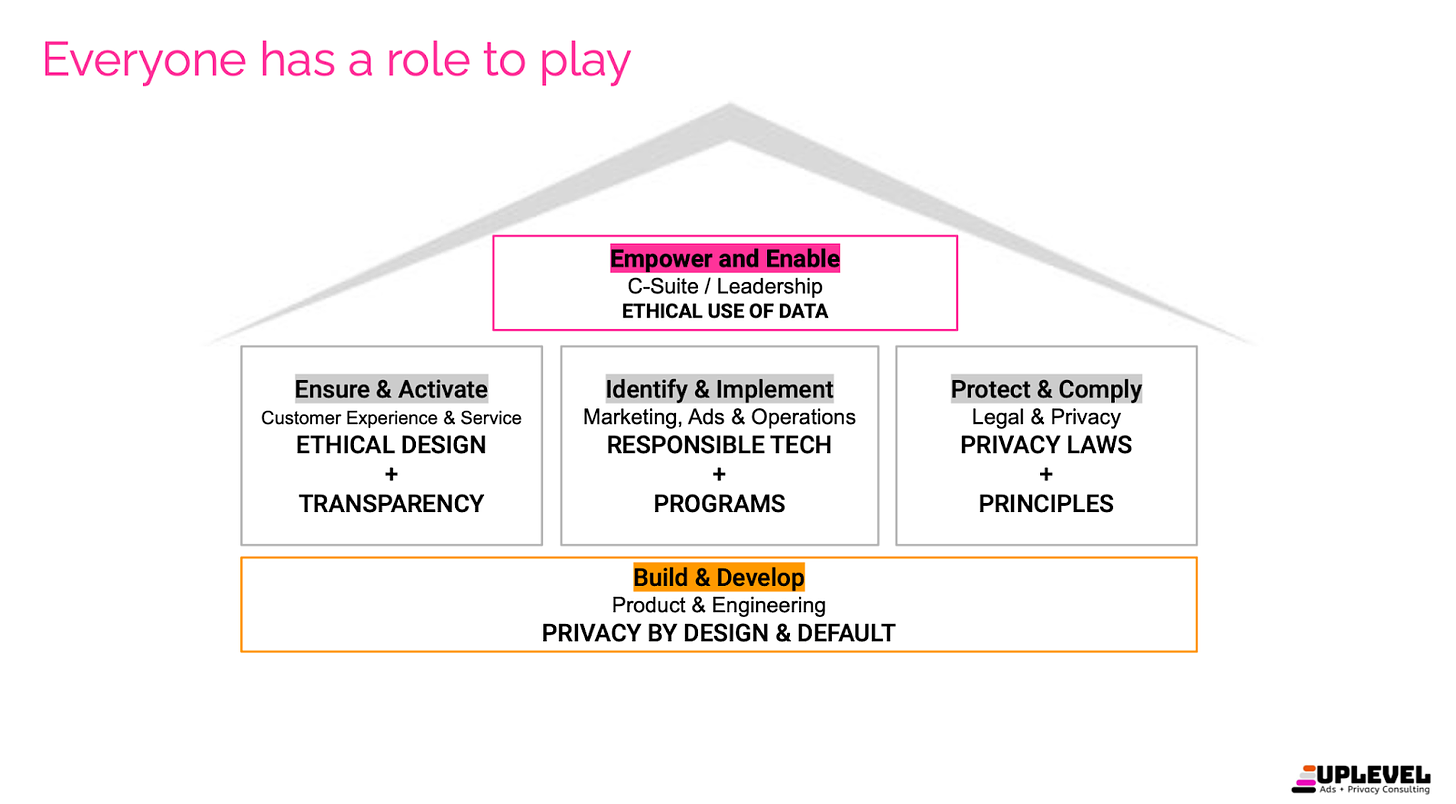What the FTC Tells Us About Privacy
An Ex-FTC, Privacy & Marketing Leader, Explains How to Use the Agency’s View of Privacy to Improve Your Business
Are you a techie looking to build a more private, ethical Internet? Take our survey!
As someone who has spent over 20 years deeply immersed in various facets of the industry, including brand management, agency work, and ad tech, my journey has been as diverse as it has been enlightening. However, it was during my time at the Federal Trade Commission (FTC) as a White House Presidential Innovation Fellow that my perspective on privacy and its intersection with business practices truly crystallized.
At the FTC, my focus was primarily on advertising practices and privacy within both, consumer protection and competition. This involved a wide array of engagements, from investigations and enforcements to policy-making, market research, workshops, and tech sprints. Each day brought new challenges and insights, making it an incredibly dynamic experience.

One of the key takeaways from my time at the FTC was the agency's intense focus on the intersection of tech, consumer privacy, and antitrust issues. Consumer data lies at the heart of many of these issues, driving both competitive conduct and privacy concerns. This understanding has only grown since my time there, with recent actions from the FTC highlighting the importance of this intersection.
The establishment of the Office of Technology within the FTC is a clear indicator of this focus. As the founding member of this office, I had the opportunity to shape its direction and objectives. The office serves as a shared resource across bureaus, enhancing the FTC's expertise in dealing with emerging technology issues. This focus, committment and the desire to move upstream, enables the agency to take a holistic look at a business and its practices.
Get Your House In Order
In today's digital landscape, businesses face a dual challenge of navigating data privacy pressures and technological changes. The shift away from traditional identifiers like cookies has led to increased fragmentation and the need for alternate data sources and techniques. To address these challenges, businesses must adopt a holistic approach that considers the ethical implications of their digital experiences, the transparency of their data practices, and the robustness of their legal and compliance frameworks.
To make any meaningful change, it is important to understand how consumers and regulators experience a business or brand. How they engage with or investigate.
From the Outside: is the digital experience ethical and fair? Is there any trickery or manipulation? Is it a never ending circular loop?
From the Inside: what data are you collecting? Is your consent experience informative and clear? Are you honoring consumers rights?
In the Hidden corners - are your policies up to date? Are you using any sort of trackers? Are you saying what you do and doing what you say?
I liken this approach to preparing a house for springtime. Just as you would make the outside of your house welcoming, ensure the inside is cozy and comfortable, and check the dark corners for any issues, businesses must also address these aspects of their operations to thrive in today's environment.
The Collaborative Approach to Privacy
Building on the above, a holistic approach is required for a medium to long term success of a business. It requires involvement from all levels of the organization.
C-Suite and leadership must champion ethical data use. EMPOWER & ENABLE
Conduct workshops and trainings to educate teams on the importance of data stewardship and ethical practices.
Develop and implement a Data Stewardship Commitment program that outlines clear guidelines and responsibilities for handling consumer data.
Provide ongoing support and resources for teams to implement and uphold the Data Stewardship Commitment, including tools and best practices.
Customer experience must ensure transparency in design. ENSURE & ACTIVATE
Perform thorough audits of websites, apps, and digital platforms to identify any dark patterns or unethical design practices.
Provide recommendations and guidance on how to rectify identified issues and create fair and transparent digital experiences.
Develop a centralized library of fair patterns and best practices for sustainable implementation across all digital properties.
Marketing and advertising must pivot to privacy-first. IDENTIFY & IMPLEMENT
Collaborate with businesses to assess their current tech strategies and identify areas for improvement in privacy and data management.
Develop transformation roadmaps, outlining steps for implementing privacy-first practices and future-proof solutions.
Provide ongoing support and guidance throughout the implementation process, including readiness reviews and data strategy consultations.
Legal and privacy teams must comply with regulations. PROTECT & COMPLY
Assist businesses in building and maintaining a consented audience pool, ensuring compliance with regulations such as GDPR and CCPA.
Conduct vendor compliance checks and risk assessments to identify potential privacy vulnerabilities and mitigate risks.
Provide expertise and guidance on navigating privacy regulations and establishing strong relationships with legal counterparts.
Product and technology must prioritize PbD principles. BUILD & DEVELOP
Implement The Privacy Stack, a framework for building with privacy as a default.
Provide training and resources to help technical teams understand and implement privacy principles and frameworks.
Educate business leaders on the benefits of prioritizing privacy in their infrastructure and how it aligns with their privacy objectives.
Are you currently a privacy technologist? We want to hear from you - take our survey!
Let’s Get Started
Applying this framework to our mission involves several key steps.
One of the ways to get started is to assess the organization's current practices. Conduct an audit or assessment of sorts. At Uplevel, we conduct an ‘issue spotting’ discovery, which is a specialized methodology designed based on our specific experiences at the Federal Trade Commission. This uncovers areas of improvement from the vantage points of consumers, business and regulators.
In my current roles - Founder / CEO @ Uplevel - ads & privacy consulting, Advisor @ Lucid Privacy and Vice Chair @ Ethical Tech Project - I engage in multiple issues areas, with various types of businesses. Common themes that emerge include:
(1) shortcuts don't work, (2) privacy is everyone’s problem to solve, (3) the time is now.
Upcoming Ethical Tech Project Events
SF Privacy Technologists Meetup
Shout-out to everyone that joined us at the inaugural SF Privacy Technologists Meetup! Read the wrap post on LinkedIn!
Please complete the Privacy Technologists Survey here and let us know how we can better cultivate a community of ethical technologists!
In NYC For #TechWeek? Join Us At Our Publisher’s Breakfast on Wednesday, 6/5
This exclusive event, designed for technologists, marketers, and legal professionals from publishing and media organizations, aims to spotlight the importance of responsible data practices and how they pave the way for meaningful data monetization and advertiser trust.
Prioritizing responsible data practices enables publishers to build deeper relationships with advertising partners that want to target permissioned audiences, in addition to enabling key DTC use cases like personalization, analytics, and retargeting. In an era where publishers are navigating the complex landscape of data mobilization and monetization, this timely event provides a forum to discuss this challenge and opportunity with industry experts, peers, and new colleagues.
Register Here: https://lu.ma/iilwurkl
What We’re Reading on Ethical Tech This Week
AdAge - Data Privacy - Why Brands Must Do More to Protect Consumers' Personal Information
Consumers still need stronger protection against ‘surveillance capitalism’
Tomisms - What OpenAI Can Learn from Planned Parenthood
A shit ton, apparently.
Information Week - Data Privacy in the Age of AI Means Moving Beyond Buzzwords by Dr. Maritza Johnson
Privacy is possible, but only if companies move beyond empty promises and commit to ethical data practices.
Canada Chamber of Commerce - Policy Matters: 5 Measures to Fix Canada’s Proposed AI Legislation
Are Canada's current AI laws enough to keep up with the rapid pace of technological innovation?
Digiday - Ad tech vendor Colossus faces scrutiny for alleged mismanaging IDs
Can we trust ad tech companies with our personal data, especially when giants like Colossus are accused of mismanaging IDs?
Spiceworks - Vermont Cracks Down on Personal Data Use With New Data Privacy Law
Will other states follow Vermont’s lead in tightening data privacy laws, and what could this mean for your personal data?
The Drum - Gen Z is more optimistic about AI – and less worried about data privacy
Could Gen Z's relaxed views on AI and privacy spark a shift in how we all think about and manage our personal data?
Forbes - Proposed Federal Privacy Law Gains Momentum
Could this growing support for a federal privacy law be the breakthrough we need to finally safeguard our digital rights?
The Record - FTC fires 'shot across the bow' at automakers over connected-car data privacy
How will the FTC's tough stance on car data privacy affect the information your vehicle collects about you every day?
Computer Weekly - How to manage data privacy versus the growing grab bag of requirements
Can businesses maintain their operational flexibility while adapting to increasingly stringent data privacy requirements?
The Conversation - Wearable devices can now harvest our brain data. Australia needs urgent privacy reforms
What urgent actions should Australia undertake to safeguard our neurological privacy as wearable technology advances?








